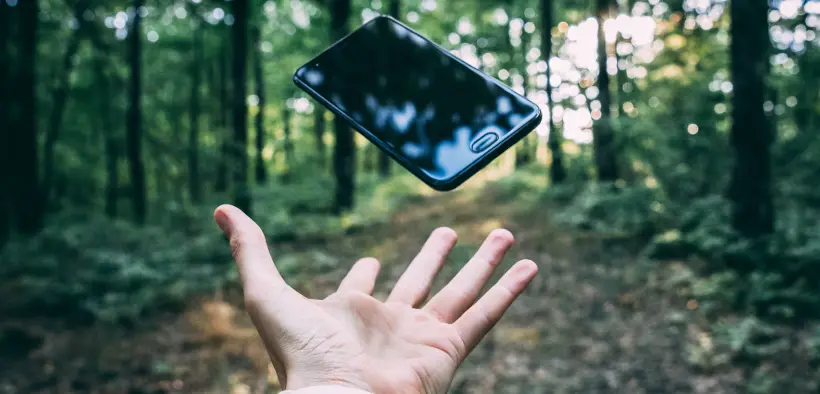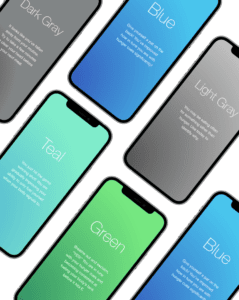6 Simple Ways to Make Digital Detox Work For You

Mobile phones, laptops, and social media – all of these have become an integral part of our daily lives, that it is almost impractical for us to assume that we can live without them. We definitely gain a lot of positives from technology, so it would be a bad idea to shun them out completely. But it is important to have a digital detox routine so we don’t overdo our time on social media or spend too much time on digital devices.
Here’re 6 simple ways to create a better relationship with technology and the online world. The importance of practicing self-care and creating boundaries around technology, social media, and the online world is something that needs to be prioritized. It can definitely have an effect on our self-esteem and mental health. So, let’s put some time to focus on “digital detox” more regularly.
What is a digital detox?
Digital detox refers to “a period of time, when a person voluntarily refrains from using digital devices such as smartphones, computers, television, tablets and social media platforms”.
Why do I need a digital detox?
According to APA, 18% of adults suggested the use of technology as a significant cause of stress. Researchers also conclude that checking phones or browsing social media at bedtime is linked to anxiety, insomnia, and shorter sleep duration. Developing a healthy relationship with digital devices and limiting your social media usage to 30 minutes per day can significantly improve overall well-being, physical and mental health.
How to do a digital detox?
Digital detox is not about complete abstinence from all digital devices, but it’s the awareness that you can develop a relationship with your device usage.
The digital detox process is about “setting boundaries” and building a healthy relationship with your device that supports mental and physical health.
Ready for a digital detox? Here’re 6 realistic ways to make digital detox work for you.
1. Have a device-free morning
Refrain from checking your phone when you wake up. It can be hard at first, as we are conditioned to look at our phones as the first thing in the morning. Try to keep your phone away during bedtime. So when it’s not there during bedtime, it’s not there when you wake up!

It can really make a difference in how you feel mentally and emotionally. Allow yourself to explore your thoughts on your own in the morning, so that you don’t get clouded by the distractions from the external world. Remind yourself that your morning sets you up for the rest of your day, so be conscious about what you do, when you wake up.
By doing so, you can start setting the tone for your day, by giving yourself time to enjoy your distraction-free morning. Even if it’s just 20 minutes before you check your phone! It can make a big difference.
2. Rediscover paper
Swap kindle, audiobooks, and podcast times with physical books on the days you can. Rediscover your relationship with reading a physical book. The crisp pages only have the “words on the page” and nothing else. Reading books, you retreat into a simpler, more analog world. You have complete freedom to focus your attention on the book and you can experience an undisturbed reading without buzzing notifications or calls.
3. Take intentional phone breaks
Research suggests that the mere presence of your smartphone can reduce your cognitive ability. So it is essential to take intentional phone breaks. It can be as simple as a half an hour phone-free walk or even cooking or painting. Next time when you go for a walk, try to leave your phone at home. We are used to going for walks with our devices. But try to not feel the need to bring your phone with you.
This allows you to go on a mindful walk and embrace the moment. You can start to document the nature around you mindfully without having to click photos!
4. Adjust what you’re exposed to
You can delete apps you don’t need or you need a little break from. Try rearranging apps on your phone, so it’s less automatic to click on them. It can encourage you to pause a little before opening the app. We sometimes feel the urge to just keep “checking”.
It is important to be aware of that “checking need”, break free of the constant habit of checking all the time. Unfollow people you don’t enjoy watching on social media. Sometimes we can get caught up by the silent standards set around social media, and start “comparing” ourselves with those standards. Let’s stop the “comparison game” and start to follow accounts that truly make us happy!
5. Keep track of your screen time

Determine how much time you are spending on your phone or computer or social media. You can do this on your own. If you are an iPhone user, there is an option in your Settings called “Screen Time ”. This allows you to track the data, minutes/hours that you are spending within certain apps. It’ll also help you understand how many times you are picking your phone.
Once you are able to become more aware of that, set boundaries for yourself. Ask yourself, “What else could I be doing with my time?”
6. Put your phone away during meal times
Give your food the attention it deserves. The more you’re able to focus on your food, you’ll start to savor your bites and feel satisfied with your meal times.
Takeaway!
For some of us, it can be easy to let go of our devices, while for others it can feel uncomfortable and stressful to go tech-free or device-free
You can let your friends and family know that you are trying a “digital detox”. It can give you a feeling of commitment and support!
While working on the “digital detox” journey, you may feel anxious, bored, or even annoyed without your tech devices. But, it is definitely a rewarding experience and will help you develop a deeper understanding of your relationship with devices. You’ll start feeling mindful without your device. Explore your creative side and be present in the activities you enjoy!
Looking to sleep better, eat a bit healthier, move more, build a practice of self-care, or just want to feel more energy each day? Let Shapa be your virtual coach. Shapa focuses your program based on YOUR lifestyle and YOUR goals so you can build healthy habits and achieve lasting results. Learn more about the Shapa difference
About the author:
Sujatha is the study manager and content creator extraordinaire on the Shapa Health team. With a Bachelor’s in Psychology and Master’s in Clinical Psychology from India, she furthered her academic skills in Applied Behavior Analysis from Ball State University, Indiana, USA. Currently, she resides in Chandler, Arizona. She has 4+ years of expertise as a mental health professional trained in psychometrics and psychotherapy working with children, adolescents and adults. Over the past 2 years, Sujatha developed a passion for mindful living, neuroscience research, human behavior and decision making, and is driven by curiosity and gratitude. As part of the Shapa Health team she designs personalized missions utilizing behavioral science and mindfulness techniques to improve the personal health journey of the Shapa community. When not at work, she enjoys baking, hiking and spending time with family. Connect with Sujatha on LinkedIn.




